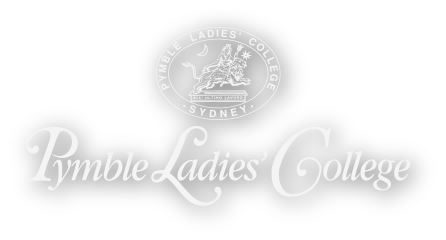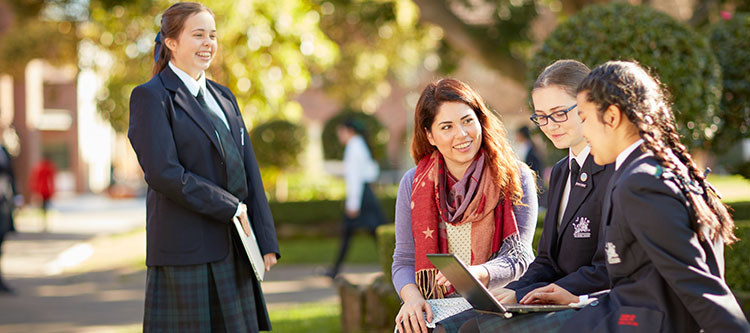The power of one-on-one coaching conversations
Thursday 16 February, 2017
Picture the following scene. Your daughter tells her mathematics teacher, “I’m really struggling with algebra.” Her teacher responds with, “I’ll go over what we just did again and then you can go home and practice it tonight.”
Now picture the same scene, but this time the teacher responds with an open-ended question, such as, “Where are you at with what we have covered today?” The teacher actively listens to the student’s answer before responding with another open-ended question that can’t be answered with a simple yes or no. This intentional process of enquiring, active listening and responding continues until the student has her “aha!” moment: “Oh yes, I had a headache yesterday and couldn’t concentrate. I’ll go back over what we did and see if that helps me to work through to what we did today.”
The second scene is an example of a Coaching Conversation, a technique teachers at Pymble have been using with students and their colleagues since undertaking professional learning sessions with Growth Coaching International (GCI) in 2014.
A Coaching Conversation is a one-on-one conversation between a teacher and a student designed to assist girls to reflect, establish and achieve their own goals in order to move forward in their learning. It’s about asking the right questions: “What might be preventing you from finishing your work in class?”, “What could you do if this happens again?”, “What will you do next time?”.
Most importantly, it’s about listening to the student and trusting in her ability to identify a problem or a roadblock as well as the steps to take to overcome it, as opposed to simply telling her what to do.
The truth is that it’s easier (and quicker) to show or tell our girls that they should do X or Y in response to a problem or a setback, especially when we believe that experience affords us the answer. However, serving up an answer on a plate is not a long-term learning strategy that will help our girls to develop a growth mindset. In fact, telling someone how to solve a problem encourages the exact opposite: a belief that “I don’t have to think because someone will tell me what to do.”
In a Coaching Conversations seminar for Pymble parents, international coaching expert, Dr Christian Van Nieuwerburgh* said it was important to “create time to listen, and by that I mean quality listening. Don’t rush in and talk too much.
“We can be most helpful by holding back, not rescuing them or jumping in to fix things.”
The beauty of Coaching Conversations is that parents can use the ‘open-ended question and active listening’ technique at home with their daughters to support them in finding their own solutions to everyday challenges and personal issues, such as overcoming shyness or friendship conflicts, or even how to manage a part time job with homework and after-school commitments. In doing so, I have no doubt you will see what our teachers see in our girls following Coaching Conversations at the College:
- Increased self-confidence
- Improved relationships
- Better decision-making
- The ability to set and attain meaningful goals
- Enhanced performance
- The ability to cope in challenging circumstances
- Greater resilience.
Now that’s a conversation worth having.
* Dr Christian van Nieuwerburgh is the Director of Research at Growth Coaching International, UK and Associate Professor of Coaching at Henley Business School. He has been working with Pymble since 2014 in an ongoing partnership to foster a culture of coaching amongst staff and between teachers and students.



